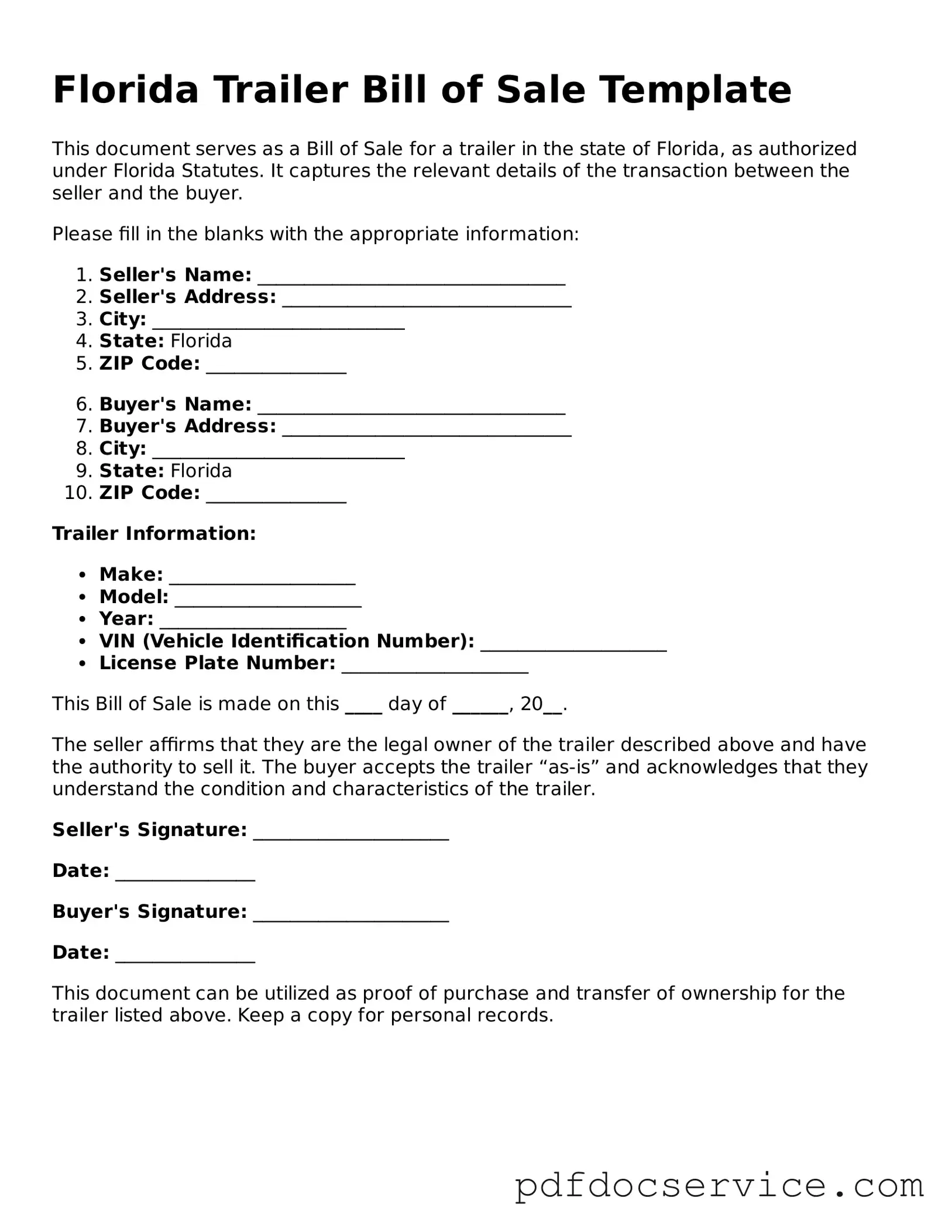What is a Florida Trailer Bill of Sale?
A Florida Trailer Bill of Sale is a legal document used to transfer ownership of a trailer from one party to another. This form serves as proof of the transaction and includes important details about the trailer, such as its make, model, year, and Vehicle Identification Number (VIN). Both the buyer and seller should keep a copy of this document for their records.
Why is a Bill of Sale necessary for trailers in Florida?
In Florida, a Bill of Sale is essential for several reasons. Firstly, it provides a clear record of the transaction, which can help prevent disputes in the future. Secondly, it is often required when registering the trailer with the Florida Department of Highway Safety and Motor Vehicles (DHSMV). Lastly, it can serve as proof of ownership, especially if the trailer is involved in any legal issues or accidents.
The Bill of Sale should include the following information:
-
Names and addresses of both the buyer and seller
-
Date of the sale
-
Trailer details, including make, model, year, VIN, and any identifying features
-
Sale price of the trailer
-
Signatures of both parties
Including all this information helps ensure that the document is complete and legally binding.
Can I create my own Bill of Sale for a trailer?
Yes, you can create your own Bill of Sale for a trailer. However, it is crucial to ensure that it includes all the necessary information and complies with Florida laws. There are templates available online that can guide you in drafting a valid document. Alternatively, you may consider using a pre-made form to avoid missing any important details.
Is the Bill of Sale required to register a trailer in Florida?
Yes, a Bill of Sale is typically required to register a trailer in Florida. When you go to the DHSMV to register the trailer, you will need to present the Bill of Sale along with other documentation, such as proof of identity and any previous registration or title documents. This helps the state verify the ownership and legitimacy of the sale.
What if the trailer is sold "as-is"?
When a trailer is sold "as-is," it means that the buyer accepts the trailer in its current condition, with all faults and defects. It is advisable to clearly state this on the Bill of Sale. This protects the seller from future claims regarding the condition of the trailer after the sale. Buyers should conduct a thorough inspection before finalizing the purchase to understand what they are agreeing to.
How do I obtain a copy of the Bill of Sale after the sale?
To obtain a copy of the Bill of Sale after the sale, both the buyer and seller should keep their own copies. It is best practice for both parties to sign two copies of the document at the time of the sale—one for the buyer and one for the seller. If a copy is lost, the original parties may need to draft a new Bill of Sale and sign it again to replace the lost document.
What should I do if the seller refuses to provide a Bill of Sale?
If the seller refuses to provide a Bill of Sale, it is advisable to reconsider the transaction. A Bill of Sale is an important document that protects both parties. If you still wish to proceed, you can draft your own Bill of Sale and ask the seller to sign it. However, be cautious, as a lack of documentation can lead to complications down the line, especially regarding ownership and registration.

